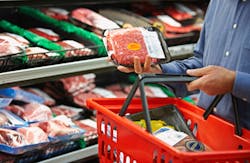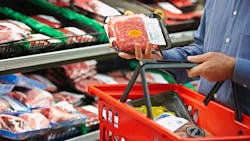If the U.S. government had acted faster in the Salmonella Heidelberg outbreak in 2011, which was linked to ground turkey, there could have been fewer people affected by the illness, concludes a newly published report by the Pew Charitable Trusts.
Two years ago, an outbreak of Salmonella Heidelberg was detected by the Centers for Disease Control and Prevention (CDC). However, the source of the disease was found a full 10 weeks after the outbreak was detected and 22 weeks after the first person fell ill. It took months for health officials to discover that the Salmonella Heidelberg was linked to ground turkey from Cargill Meat Solutions, located in Springdale, Ark.
However, during the months in which investigators tried to identify where the outbreak had started, the total number of illnesses associated with it reached 136 in 34 states and many of them could have been prevented by a faster and more effective reaction from the government bodies, the report discovered.
As far as the investigation went, the report from Pew identified three key shortcomings. The first was related to the fact that both federal and state health officials sometimes do not take Salmonella outbreaks seriously enough. In cases of Salmonella outbreaks, officials sometimes fail to interview patients in due time and not all states require Salmonella isolates from patients to be sent to public health labs for a DNA sequencing.
RELATED: Cargill to idle Plainview, Texas, beef processing plant as cattle supply dwindles
The second problem that Pew found during the investigation was the fact that when Salmonella isolates are found in poultry or meat and are uploaded to the CDC's foodborne pathogen database, the food product is not identified by brand name, which prevents the timely matching of food samples with a certain Salmonella isolate from a patient.
Finally, the third shortcoming was in the slow reaction from government agencies when it comes to getting in touch with the food production company that is believed to be related to an outbreak until they are certain that the illnesses are linked to the given brand. A quicker reaction by the time the company is suspected to be connected with an outbreak could reduce the number of illnesses, the report stated.
Sandra Eskin, director of Pew's food safety campaign, commented that foodborne illnesses are preventable and lessons should be learned from every outbreak that occurs. Pew's report identified areas that could be improved and measures that could be taken to ensure that federal and state public health agencies act promptly to pinpoint the source of the outbreak, start recall operations and help protect consumers, she added.
Pew also stated that Salmonella outbreaks cost the U.S. healthcare system approximately $11 billion in healthcare costs for treating about one million people per year. Salmonella is responsible for the highest number of hospitalizations and deaths, compared to other foodborne pathogens. That is why the report recommended that more attention be paid to Salmonella by public health agencies, by making such outbreaks a priority, by accelerating the response to outbreaks and by enhancing monitoring systems for these bacteria.



